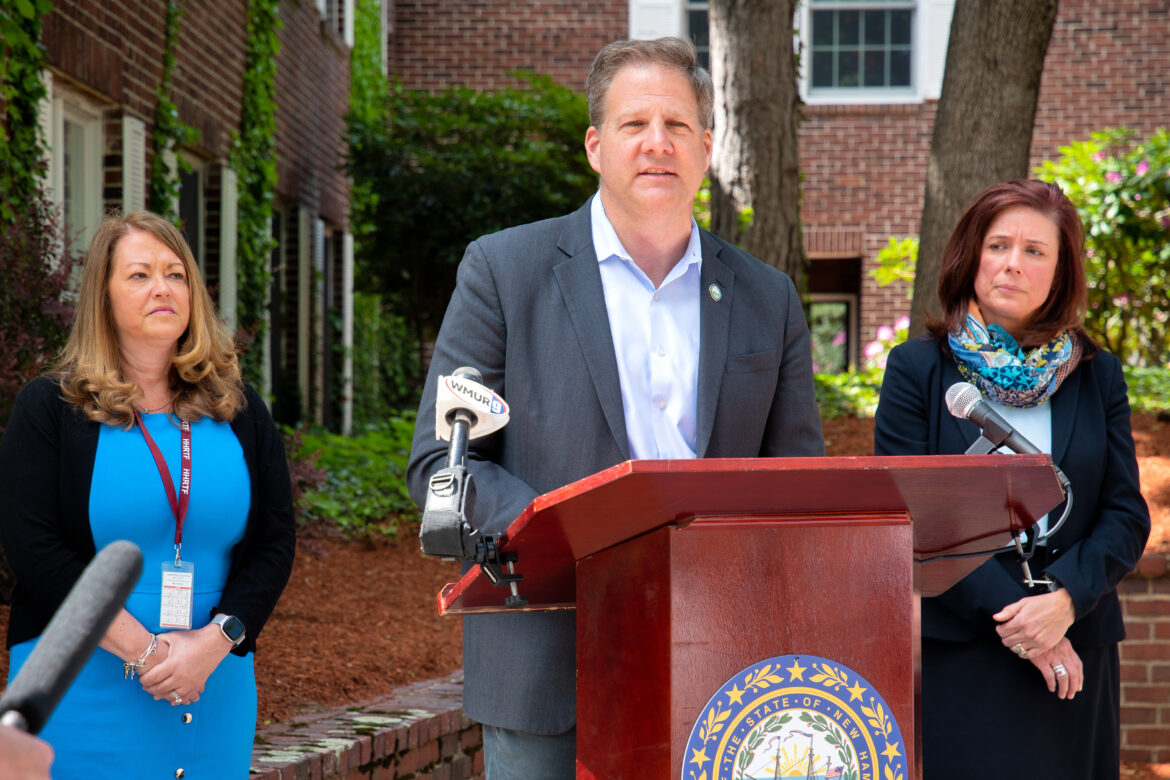By PAULA TRACY, InDepthNH.org
With 15 children waiting in hospital emergency rooms for mental health placement Friday, Gov. Chris Sununu and Health and Human Services Commissioner Lori Weaver went to Hampstead to cut the ribbon on a new facility that will add 71 new beds when complete.
The ceremony officially opens the 12-bed East Acres at Hampstead at the former Hampstead Hospital, the state’s first level 5 psychiatric residential treatment facility.
This is the highest level of mental health care and the only youth psychiatric treatment facility in the state.
The Executive Council earlier this year approved federal American Rescue Plan Act funds to purchase the formerly private psychiatric hospital for both adults and children on about 100 acres.
It now only serves children and is still in the process of renovation.
“One thing I very firmly believe in is that when you’re providing mental health services with a quality level of care, focused on providing supports in a new and different way – especially when it comes to kids – you become a center of excellence,” said Sununu. “A mission of the state has been to make it simple to access these services with a streamlined process. To be here today is an awesome accomplishment.”
The state DHHS website shows that there were 43 beds occupied there on Friday while 28 of the beds remain offline for renovations and 13 are unoccupied due to a lack of staffing.
The state also reported there were 44 adults waiting in hospital emergency rooms for placement in a psychiatric facility as the state continues to struggle with its emergency room boarding crisis.
On May 18, a federal judge ruled that New Hampshire has one year to stop holding psychiatric patients in emergency rooms after determining earlier that the practice is an “illegal seizure of hospital property.”
Sununu and Weaver toured the facility and held a press conference and ribbon cutting Friday afternoon.
The department last week announced “mission zero,” a plan to eliminate hospital emergency room boarding of psychiatric patients by 2025.





